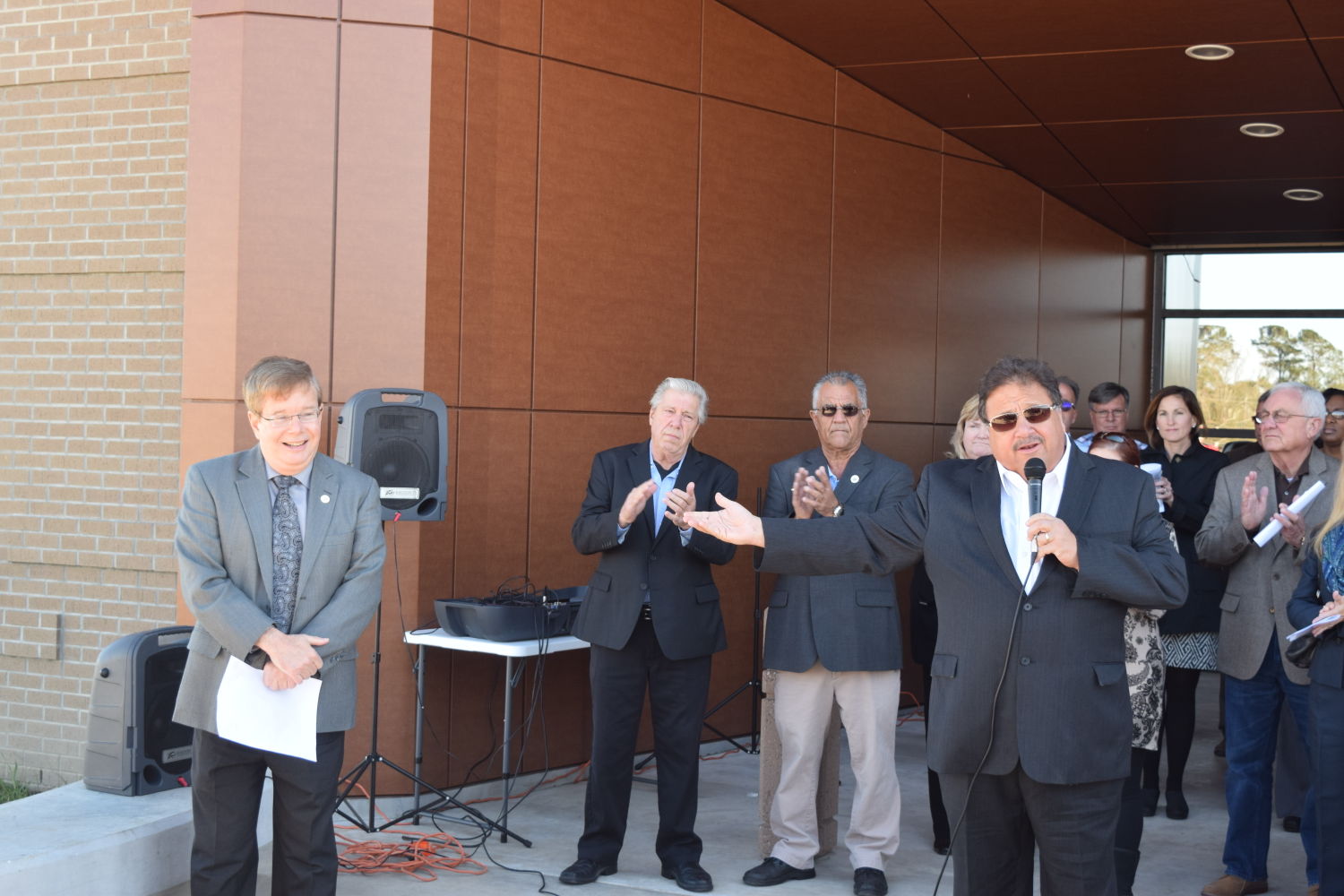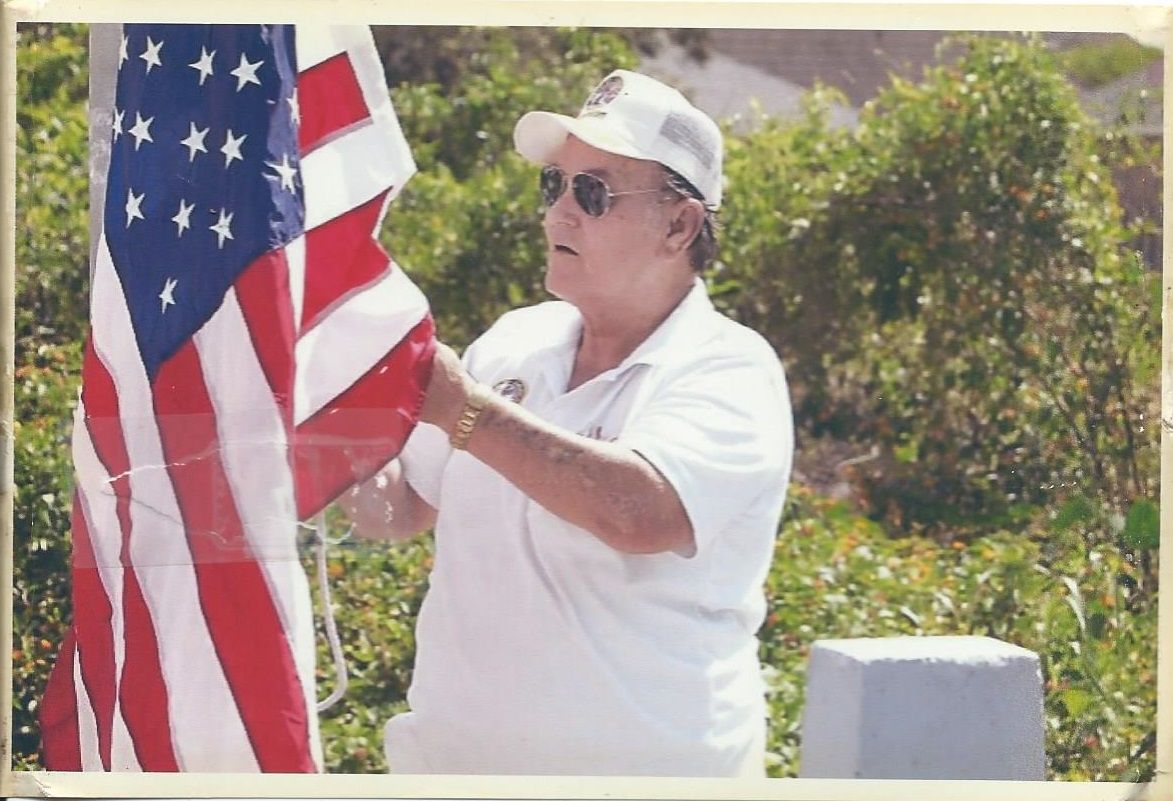
Application period ends today for vacant Ellender football position
January 5, 2016
Dove looking ahead to improving Terrebonne’s many ongoing projects
January 6, 2016Roger Songe didn’t have a lot of choices when Uncle Sam called him for military service in 1968. But he had a lot of choices after surviving his tour of duty in Vietnam, and one of the paths he took was a lifetime of serving others who had served.
The Houma native died Sunday, Dec. 20, 2015, and leaves behind a towering legacy of lending a helping hand to Bayou Region veterans. He helped them navigate bureaucracy, familiarized them with forms, and in a more public sense did his part to elevate awareness of veterans’ needs.
“Roger Songe was a Vietnam veteran who understood the needs of veterans and dedicated his life to honoring and assisting veterans,” said Terrebonne Parish President Michel Claudet, who worked closely with Songe during his eight-year tenure. “He can be credited with two major accomplishments in Terrebonne. One is the Memorial Park on La. Highway 311 and the other is the Veterans Homeless Shelter on Grand Caillou Road. There is currently a large movement to name the Memorial Park on La. Highway 311 after him. Roger worked selflessly in all of his efforts with his only goal to assist or honor veterans. He will surely be missed.”
Lee Shaffer of Houma, who served on the Veterans Memorial District Board and also worked closely with Songe, said there was never a doubt that the sometimes outspoken veteran’s advocate would always “want to do everything for the right reasons.”
“He was always trying to make it work and function well,” Shaffer said. “He wasn’t looking for accolades or pats on the back. When he started the veteran’s shelter on Grand Caillou Road, he knew there was a need for a place for veterans who are transitioning back from the military.”
Songe distinguished himself in service to organizations like the Vietnam Veterans of America and the Disabled American Veterans. But it was his unique, personal assistance that made the difference for men and women he assisted.
Cindy Songe, his wife of 43 years, recalls how Roger would meet with other veterans for coffee in their home, a practice that began in the 1980s.
It was only later that he would come to realize that his war experience left him with wounds of the mind. Post Traumatic Stress Disorder was not recognized by the military back then.
“He didn’t start talking about Vietnam for a while, for a long time,” she recalled. “He formed a group of guys who got together and talked at our home, they would sit up all night and talk. It was healing, it was consoling to him and to them.”
Relating shared experiences, many of which people who had not served in the military could understand or give a contextual basis to, was a cornerstone of the healing experience.
During the Vietnam era, one of the burdens veterans carried was the effect that war’s controversial nature had on their relation to fellow Americans. Songe had often said in interviews how he and other veterans of the Vietnam War received no welcome upon their return.
Songe met his wife, the former Cindy Theriot, two years after his military discharge. He was working then for the Terrebonne Ambulance Service; she was in beauty school. They met at a Houma bar, and the next day he asked her to accompany him to Grand Isle.
“It was summertime and we were married the October after,” Cindy said. “It was a short engagement but a long marriage.”
Songe later went to work for the Terrebonne Parish Sheriff’s Office, under former sheriff Charlton Rozands. But in the early 1980s he suffered his first heart attack; Songe’s public sector employment came to an end but not his dedication to public service.
He trained to become a service officer for veterans, aiding them with the paperwork. He set up shop in a Veteran’s Affairs office, in the cafeteria, but that became problematic from a privacy standpoint. The United Veterans League gave him space to work, but that was also cramped. Eventually, when he opened the shelter on Grand Caillou Road, Songe found a home for his work, which continued until recently.
Songe began ailing, and spent more time at home, delegating the work to others.
But he still made time for family members, especially his grandson, Johnathan Hebert, who is 15 years old.
“He would tell me stories,” Johnathan said, recalling tales about how his grandfather would lay on the hood of an armored personnel carrier during long, tense nights in Vietnam, and how despite the horrors of war there was a sense of peace he found looking up at the stars.
“He was my best friend and a father figure to me,” Johnathan said. “I feel that he put a lot of the war behind him, but he said he still got nightmares once in a while. It was really hard to be a civilian again. He used to tell me about the children in Vietnam, how they lived, how he felt sorry for them.”
Roger gave Johnathan his Christmas present early last month, a WWI bayonet that had been given to him by another veteran.
The next day he suffered a fatal stroke, and the family members – along with Houma’s community of veterans – struggled with having to place Roger Songe in the past tense.
Asked to sum up who her husband was – to her and those in the world around him – Cindy Songe offered a simple, plaintive sentence.
“He was a leader and a giver.” •
Roger Songe raises the American flag at the Veterans Memorial Park in Houma, a task he routinely performed.











